Individual consumers may find it difficult to perceive the VAT reduction policy.
At the end of November 2023, the National Assembly agreed to further reduce the value-added tax (VAT) from 10% to 8%, to be applied for six months, from January 1, 2024 to June 30, 2024.
This is the third time the National Assembly has agreed to reduce the VAT by 2%. Previously, the first reduction was from February 1, 2022 to December 31, 2022. The second was from July 1, 2023 to December 31, 2023.
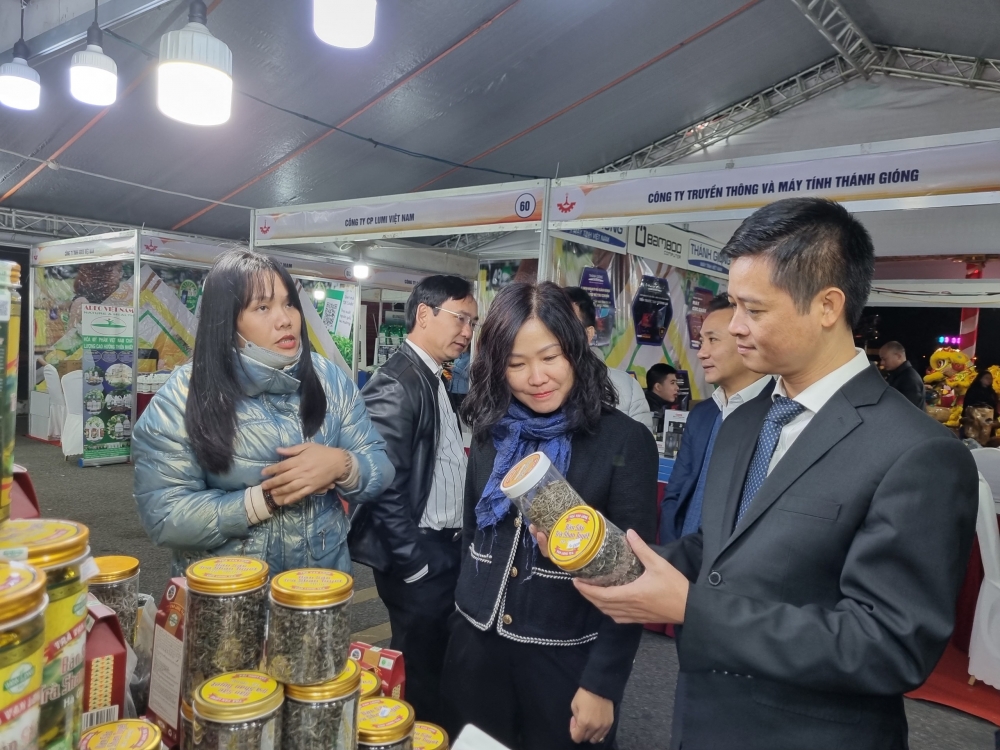
Individual consumers may find it difficult to perceive the benefits of the VAT reduction policy. (Photo: Moit)
Observations show that many people are aware of the 2% VAT reduction policy from the beginning of 2024, but they have not yet felt a significant difference from this policy.
Speaking with a reporter from the Newspaper for Journalists and Public Opinion, Ms. Kim Loan, a resident and worker in Hanoi, shared that the 2% reduction in VAT is relatively small and difficult to perceive as a positive change to this policy.
"I understand that the 2% VAT reduction will help people ease their financial burden. However, as an ordinary consumer, I haven't really felt the full impact of this policy on my life. For example, a 3kg bag of rice that used to cost 120,000 VND is now only 3,000 VND less, or a box of instant noodles is only 4,000-5,000 VND," Ms. Loan said.
Furthermore, not all consumer goods are eligible for the 2% VAT reduction.
Agreeing with this view, Mr. Vo Thanh An, the leader of a textile and garment business, believes that the VAT reduction policy is better for businesses than for ordinary individual consumers.
"For businesses, the VAT reduction policy has a huge impact; many import costs for raw materials have been significantly reduced, which eases the pressure on businesses," this person said.
Tax cuts mean budget cuts, but they are necessary.
Meanwhile, Dr. Vo Thi Van Khanh, from the Business Administration Faculty of the Academy of Finance, stated that in Vietnam, the most common VAT rate for goods is 10%. This means that a common item purchased by a business for resale already includes 10% VAT. However, there are also some cases where special goods are subject to a tax rate of only 5%, or even 0%.
According to Ms. Khanh, a 2% reduction in VAT means a decrease in state budget revenue. Therefore, with two reductions in VAT from 10% to 8%, it is expected to reduce state budget revenue by approximately 80,000 billion VND.
“VAT is a widely applied tax on almost all goods and services and has the broadest impact on people's lives. Therefore, reducing this tax will not only save costs for people and stimulate consumption, but also promote investment and alleviate difficulties for businesses affected by the COVID-19 pandemic,” said Dr. Vo Thi Van Khanh.
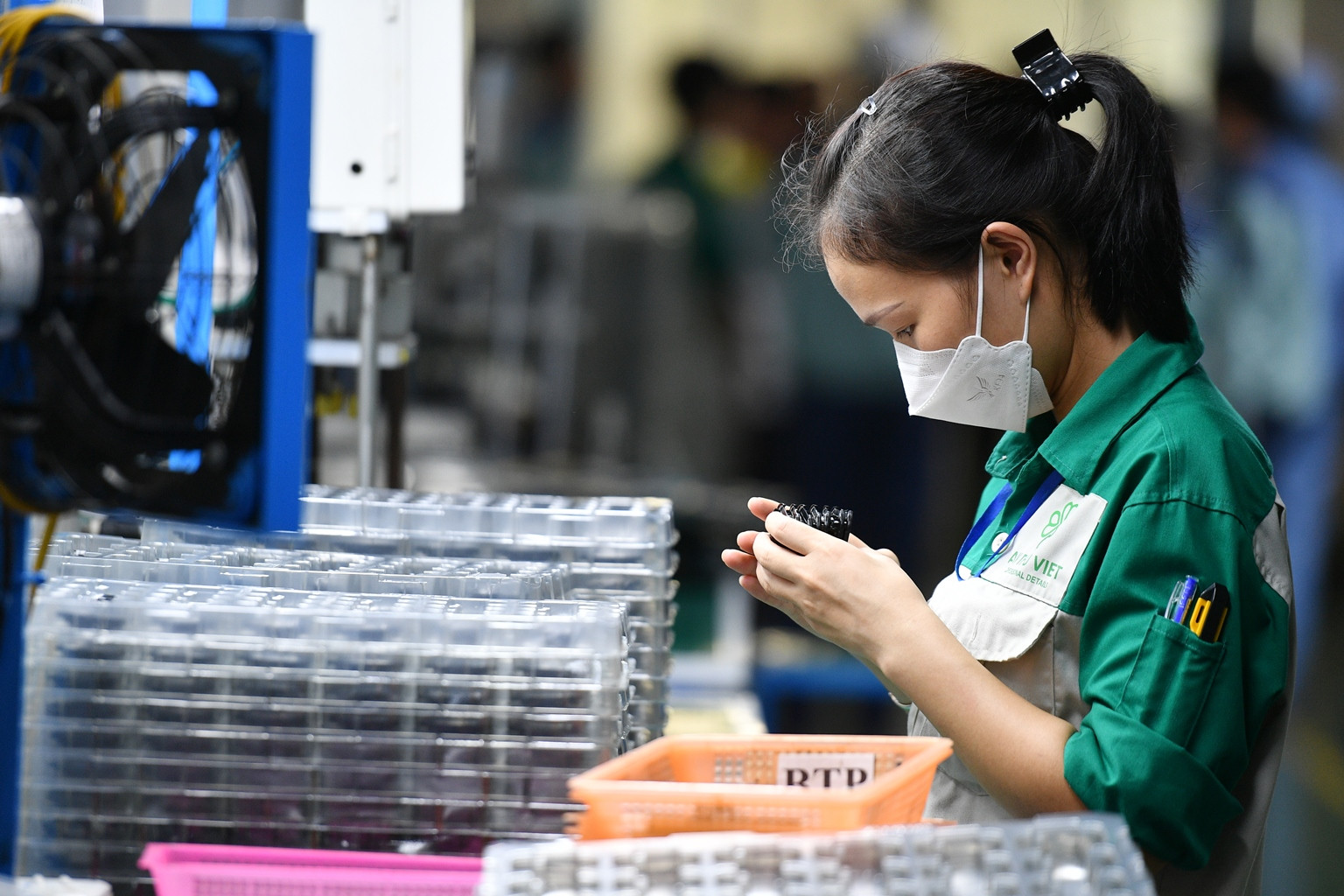
Tax cuts mean budget cuts, but they are necessary. (Photo: PO)
According to Ms. Khanh, in addition to the solutions that have been and are being implemented for 2023, such as extending the deadline for tax and land rent payments; reducing land rent; and reducing environmental protection tax on gasoline and oil products, continuing to reduce VAT as applied in 2022 to support businesses and people is necessary.
"This facilitates the recovery and promotion of production and business activities, creating momentum for economic growth in the current difficult context, contributing directly and indirectly to maintaining jobs, workers' incomes, and new revenue sources for the state budget," Ms. Khanh emphasized.
In fact, VAT is an indirect tax, included in the selling price of products, goods, and services. Therefore, when the tax is reduced, the price of goods and services will decrease, thereby helping people buy more goods with the same amount of money.
In addition, the positive impact of reducing VAT from 10% to 8% also helps businesses reduce the capital expenditure for paying VAT when purchasing raw materials, fuel, and other inputs in a capital turnover cycle.
"This means that businesses will save approximately 2% (the tax reduction rate) of their total purchase revenue. This money will be reinvested to boost production and business development," Ms. Khanh said.
To benefit from the tax reduction, businesses need to identify the product codes eligible for VAT reduction; and adjust the prices already printed on stamps, tickets, and cards at tourist areas, checkpoints, etc.
In summary, the 2% reduction in VAT is and will continue to benefit businesses and citizens alike, providing the economy with further impetus for business recovery, demonstrating the most practical, direct, and effective support and sharing from the government.
"At the same time, it requires the Ministry of Finance and relevant agencies to continue reforming and modernizing the tax system, simplifying tax administrative procedures, strengthening the effective implementation of tax laws and managing state revenue collection to combat tax evasion, transfer pricing, and tax avoidance... to compensate for the shortfall in state budget revenue due to tax reductions...", Ms. Khanh added.
Source










![[Infographic] Cross-exchange rates for determining taxable value from December 11-17](https://vphoto.vietnam.vn/thumb/402x226/vietnam/resource/IMAGE/2025/12/11/1765413245543_infographic-ty-gia-tinh-cheo-de-xac-dinh-tri-gia-tinh-thue-tu-11-1712-20251211021920.jpeg)








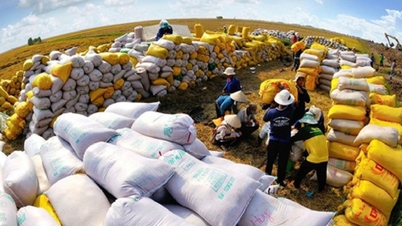














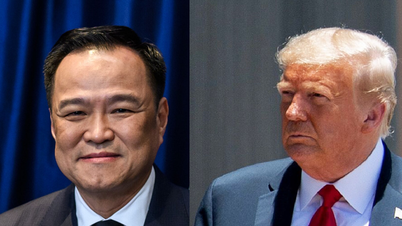
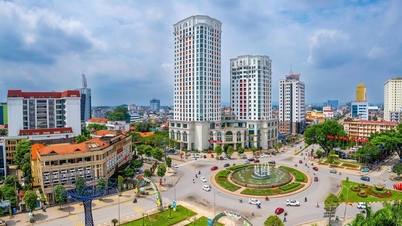



























































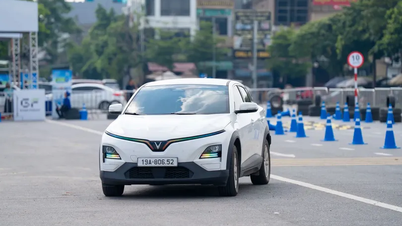

















Comment (0)